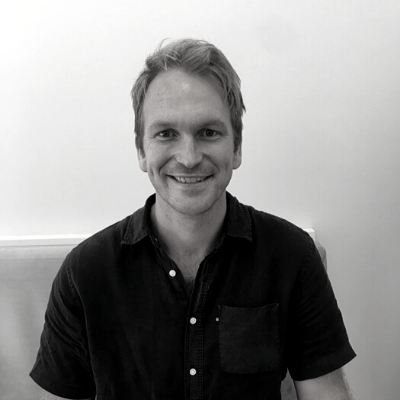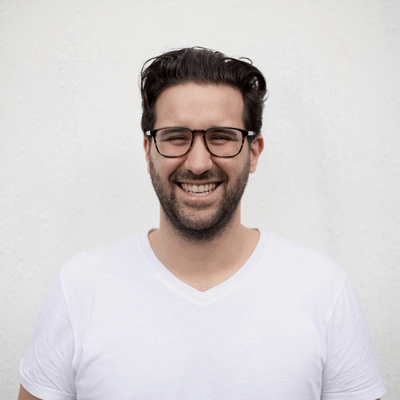Insomnia is defined as poor quality sleep despite dedicated time and space for sleep to occur. And, it’s no surprise that an increasing number of Australians are looking for medical help with sleep disorders. A Sleep Health Foundation study found that 14.8% of Australians have symptoms of insomnia. Lack of sleep can have severe consequences for your body and mental health.
There are various over the counter supplements and doctor-prescribed treatments which can help with sleep. With the popularity of natural medicines on the rise, people are asking whether cannabis (CBD and THC) can help treat insomnia and other sleep conditions.
In this article, you’ll learn about the importance of sleep, traditional treatments for insomnia and how cannabis can help treat insomnia. We spoke with Dr Jim, a medical practitioner and experienced cannabis prescriber, where we covered the following topics:
- 00:03 | The importance of sleep.
- 00:43 | What are some signs of having a sleep disorder or insomnia?
- 01:28 | When should individuals seek a doctor’s help for a sleep disorder?
- 02:34 | How is insomnia diagnosed?
- 03:20 | Can cannabis treat insomnia?
- 04:47 | How does CBD (or CBD oil) help with insomnia?
- 05:31 | How does THC help with insomnia?
- 06:28 | What are the side effects specific to cannabis and insomnia?
- 07:46 | What type of cannabis is typically prescribed for insomnia and sleep?
- 09:27 | Is there a typical dosage of cannabis for treating insomnia?
- 10:18 | Dr Jim’s tips for good sleep hygiene
- 13:21 | What are the traditional treatments for insomnia?
- 14:11 | What are some of the side effects of traditional treatments of insomnia?
- 16:10 | Compare the impact of cannabis & other pharmacological treatments on sleep architecture.
- 16:46 | When would you treat an insomnia patient with medical cannabis?
- 17:21 | Finally, what does the research say about cannabis and insomnia?
The importance of sleep
“While sleep has been a mystery for a long time, we recognise that it’s important for laying down memory and allowing the body to undergo cellular regeneration and repair.”
Poor sleep can lead to poor health outcomes. Short term effects can include increased feelings of stress and decreased alertness. Longer-term impacts are increased risk of cardiovascular disease, diabetes, obesity, worsening mood-related disorders like anxiety and depression, and often memory impairment and impaired learning.
So, it’s essential that you get seven to eight hours of uninterrupted sleep each night.
What are some signs of having a sleep disorder or insomnia?
“Insomnia is defined as poor quality sleep despite dedicated time and space for sleep to occur. So, if you’re a shift worker or have children and you’re getting poor quality sleep, that is not necessarily insomnia.”
Some of the signs and symptoms of insomnia are:
- Difficulty getting to sleep and staying asleep.
- Waking up throughout the night.
- Waking up not feeling refreshed despite adequate sleep
- Waking up with a lack of energy and having fatigue, poor memory, morning headaches
- Potentially, a worsening of mood disorders and chronic health-related conditions
When should individuals seek a doctor’s help for a sleep disorder (insomnia)?
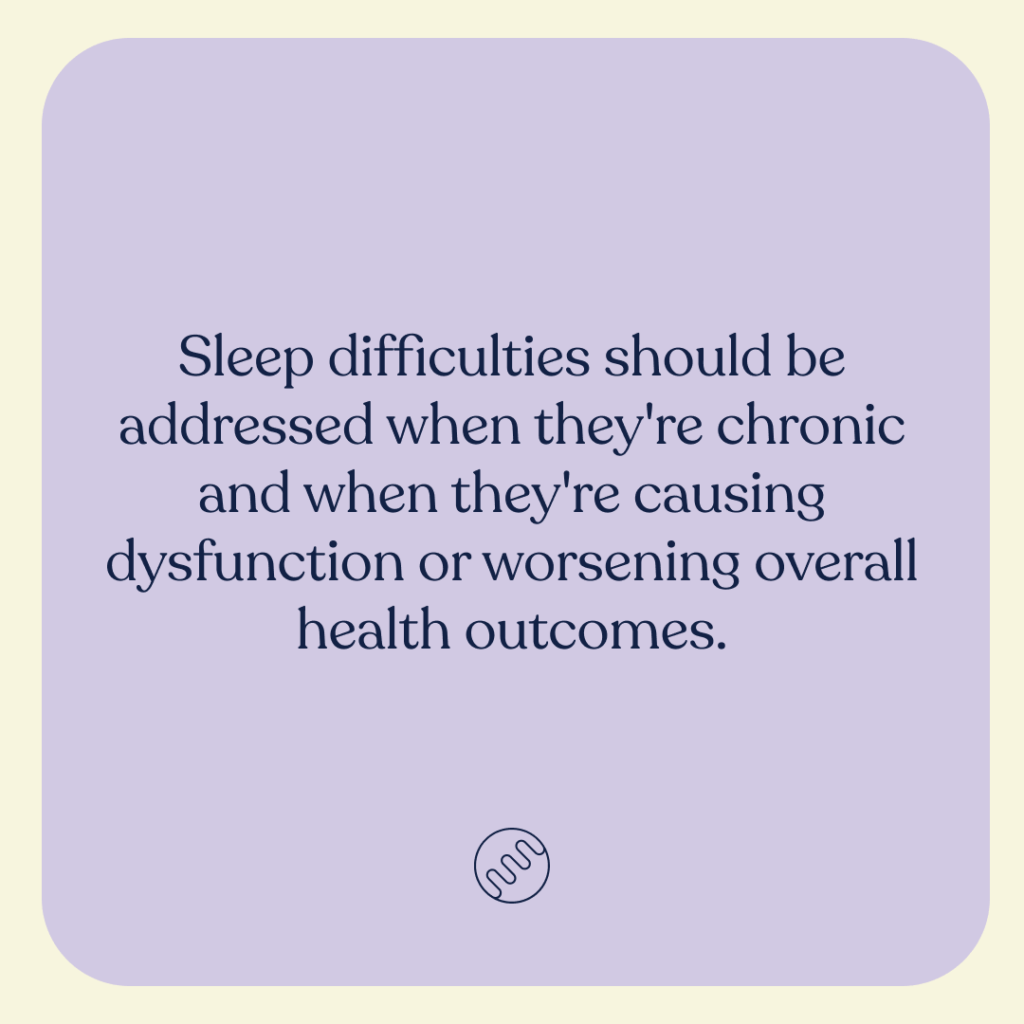
Everyone has a poor night’s sleep every now and again. Remember that insomnia is a chronic condition. It may be diagnosed when lack of sleep is causing dysfunction in your daily life, including poor performance at work, reduced quality of life, or driving difficulties.
Conditions like anxiety, depression, PTSD, sleep apnea, restless legs, nocturia related to prostatic hypertrophy and other neurological conditions can manifest with sleep disorders.
Sleep difficulties should be addressed when they’re chronic and when they’re causing dysfunction or worsening overall health outcomes.
How is insomnia diagnosed?
Sleep disorders are often diagnosed based on clinical questioning. Questions relate to sleep latency, quality of sleep, waking up throughout the night and whether you’re waking up feeling refreshed.
Patient history is important. And, sleep studies can be performed to look at someone’s quality of sleep and assess for things like sleep apnea and restless legs. To help guide when it’s appropriate to seek out sleep studies, doctors use questionnaires and tools like the Epworth sleepiness scale. Quite often, your doctor may do other questionnaires which look for comorbid conditions like anxiety and depression.
Can cannabis treat insomnia?
Yes, cannabis can be effective in treating insomnia.
“Cannabis has traditionally been used for sleep disorders throughout history. And, cannabis can be a very safe and effective treatment for insomnia when used correctly. One of the beautiful things about cannabis and sleep is that it doesn’t affect the brain’s respiratory centres. So, it doesn’t lead to any sort of sleep-breathing disorders.”
Cannabis is a complex plant, and there are variations in effectiveness between CBD and THC and each individual. CBD can be a very effective and safe treatment for insomnia, but it’s often hit and miss. About 60% of the population gets good results from CBD. In contrast, the rest can have increased stimulation and restlessness, which can worsen insomnia symptoms.
THC is often dose-dependent. When using the appropriate dose of THC, specific to that individual, it can be an effective sleep aid. But, chronic high dose consumption of THC can worsen sleep outcomes.
“Strain selection is critical when it comes to cannabis for insomnia. Classical Sativa strains often have terpenes that are generally energising and uplifting and inappropriate for sleep. Your classic Indica varieties often have sedating terpenes which are much better for sleep and sleep-related issues.”
So, cannabis can be an effective treatment when used appropriately for a patient’s unique circumstances. However, cannabis doesn’t work for everyone.
CBD vs THC for sleep and insomnia
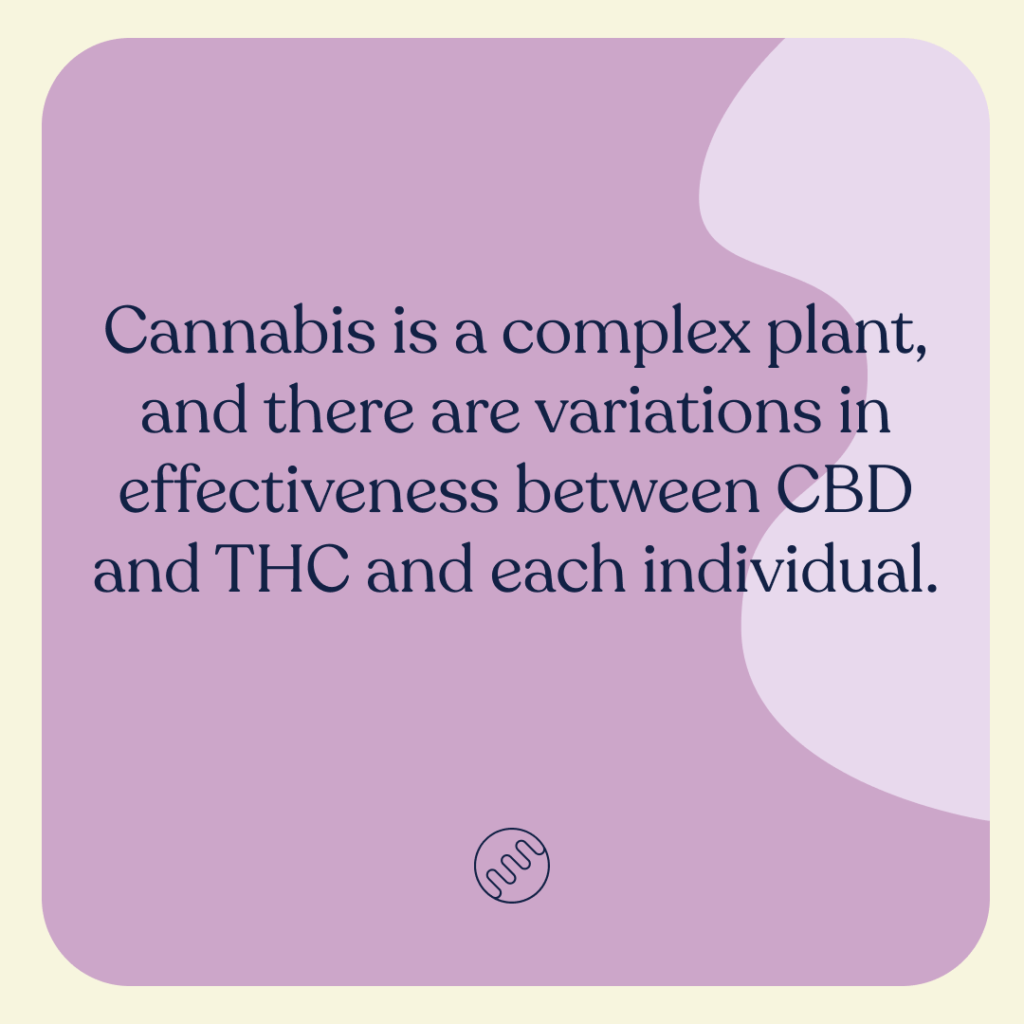
How does CBD (or CBD oil) help with insomnia?
As mentioned, about 60% of the population gets good results from CBD, and the rest may find it stimulating. How CBD interacts with your body and helps with insomnia is still being discovered. But, we know that CBD interacts with Adenosine pathways that are thought to help moderate sleep processes.
CBD can also be effective at treating other comorbid disorders that might be leading to a sleep disorder. CBD can treat anxiety, chronic pain and many other conditions that can keep people up at night. At moderate to higher doses, CBD can help upregulate the body’s Endocannabinoid System which may also help improve sleep.
How does THC help with insomnia?
THC’s main activation pathway is likely through direct stimulation of the Endocannabinoid System. Regulation of the Endocannabinoid Systemis important for sleep regulation.
One of the benefits of THC for insomnia is its relaxing effects. THC can also reduce ruminating thoughts, and can promote positive memories and reduce the intensity of negative experiences.
“THC can also change the way that we remember our dreams. So, for individuals with PTSD, where sleep is often a core feature that is affected, THC can help reduce the memories of traumatic dreams or events when used appropriately.”
What are the side effects specific to cannabis and insomnia?
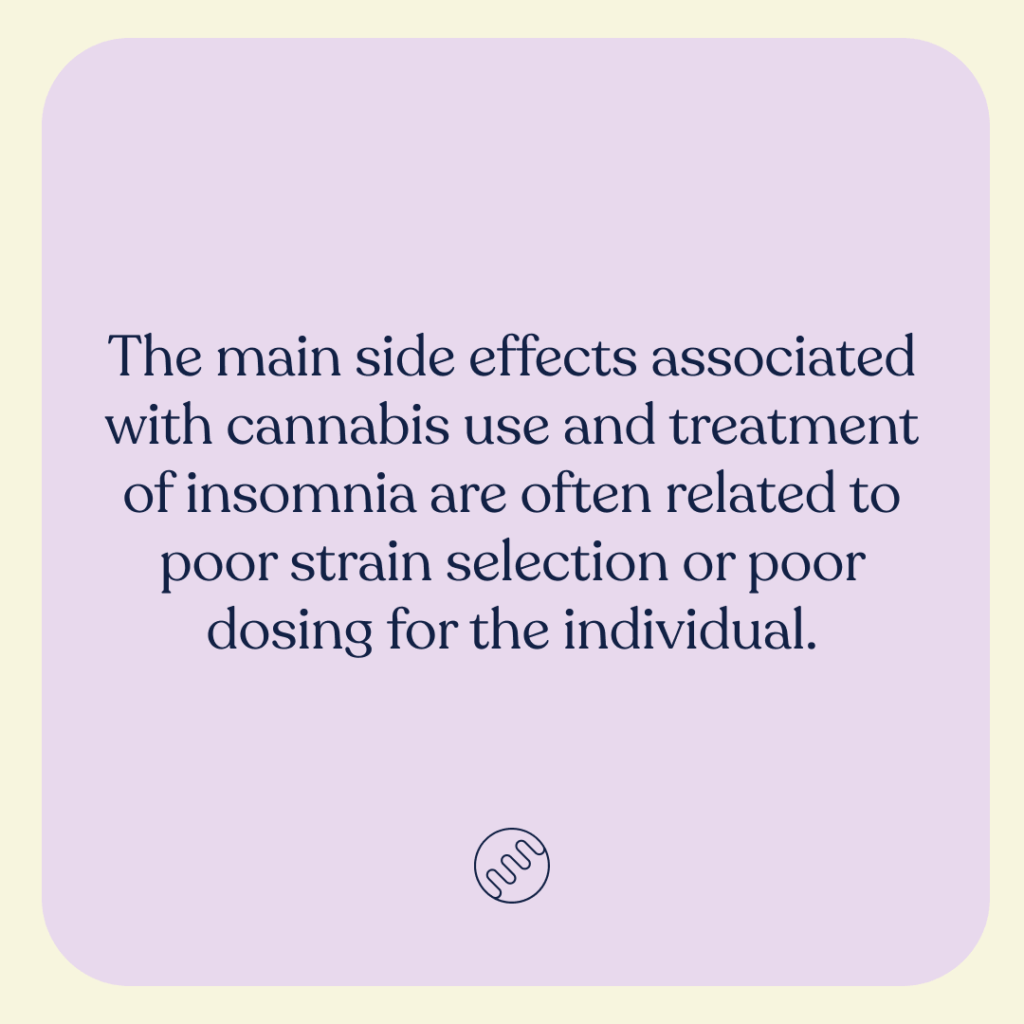
Like all other medications, cannabis can have potential side effects.
“The main side effects associated with cannabis use and treatment of insomnia are often related to poor strain selection or poor dosing for the individual.”
CBD can have a stimulating effect and cause hyper-arousal for certain people.
Incorrect or overuse of THC can lead to poor sleep outcomes. Too high a dose before bed can lead to irritability and restlessness and even a hangover effect where you might not wake up feeling refreshed, which aims to treat insomnia.
“For patients or individuals who need to get up throughout the night to urinate and have balance impairment, there’s an increased risk of falling. So, it’s necessary to caution people within this population about taking things slowly. Remind them to turn the lights on and have any of their mobility aids present when using THC based medications for sleep.”
What type of cannabis is typically prescribed for insomnia and sleep?
Because of variability in efficacy and tolerability between patients, history is taken into account. For someone who is cannabis naive (never consumed or infrequent cannabis consumption) or sensitive to THC, it would make sense to start with a CBD dominant formulation. CBD dominant doesn’t necessarily mean no THC. The medication could be an Isolate or a Full Spectrum oil with minimal THC. Dr Jim said, “Normally, I would use a CBD based formulation twice or three times a day in an oil or tincture formula.”
For those who are experienced with cannabis, or if that initial CBD based formulation doesn’t provide enough relief, then a THC based formulation might be added.
Dr Jim said, “If CBD doesn’t make significant changes, I’d probably start the patient on a THC based formulation. I’d prescribe the classical Indica variety with sedating terpenes like myrcene, linalool, nerolidol. I might recommend the oil or tincture about an hour before bed.”
Then there’s the possibility of adding a flower (or bud) based product. This doesn’t happen in all cases, just like some people will only need CBD and no THC.
However, Dr Jim also said, “If someone is having a lot of difficulty with sleep initiation, adding a little bit of a sedating flower to help with sleep initiation can be really beneficial.
Suppose the individual is having issues waking up throughout the night or metabolising their THC tincture at a rapid rate. In that case, I might recommend a second dose of THC oil at about half the pre-bed amount or some flower in the middle of the night.
Flower has the benefit that it has a shorter half-life and will be out of their system faster than an oil or tincture. This is important because we want people waking up feeling refreshed.”
Is there a typical dosage of cannabis for treating insomnia?
The short answer is no. There are numerous variables that one must take into consideration when treating insomnia with cannabis. The goal for all medicine, including medical cannabis, is to use the lowest effective dose to treat any symptoms.
Dr Jim said, “With CBD, it actually looks like the more moderate to high dosages are probably more effective for sleep. With THC, which is often the go-to formula for sleep disorders, the lowest effective dose is the most appropriate dose.
People can be very different in their sensitivity to THC, therapeutic windows, body’s own endocannabinoid function, and tone. Cannabis is a very individual thing. THC dosing varies. It could be anywhere between two and 20 milligrams.”
Dr Jim’s tips for good sleep hygiene
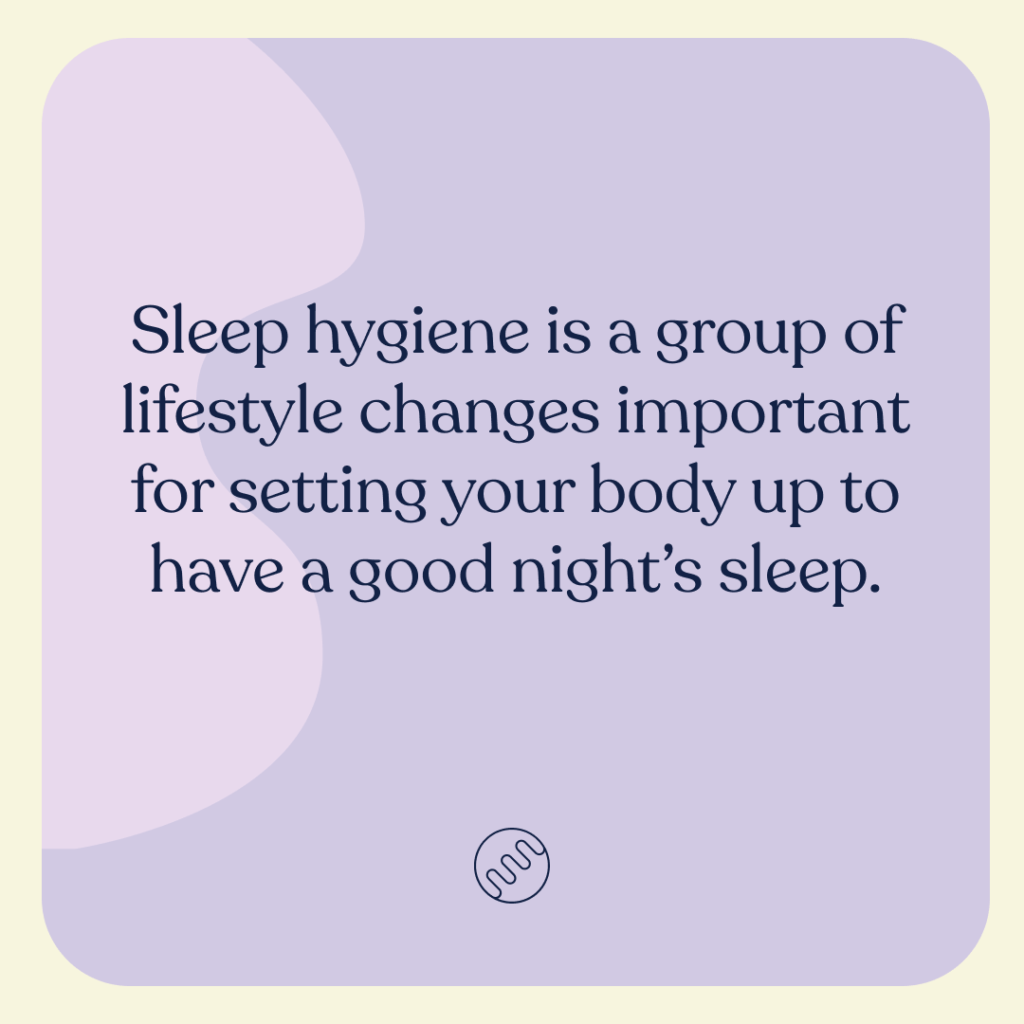
If you’re having trouble with sleep, your doctor may talk to you about sleep hygiene. Sleep hygiene is a group of lifestyle changes important for setting your body up to have a good night’s sleep. These tips are just that, tips. They should help improve your sleep, but it’s not a guarantee. Dr Jim recommended all of the following tips and tricks:
Bedtime routine
Have a consistent bedtime routine that will help with winding down and relaxation. This includes having a regular bedtime. Things like herbal tea, meditation or stretching can also help. Your bedroom should be a sanctuary for sleep and sex. Keep work and screens out of the bedroom as you don’t want to be stimulated in your resting environment.
Good and bad stimulus
Exercise can be a tool for both stimulus and winding down. It really depends on how your body reacts and the type of exercise. However, exercise increases adrenaline and other stimulating hormones initially. You want to aim to keep stimuli to a minimum as you get closer to bed. Making sure you exercise during the day so that your body is ready to wind down in the evening can be very helpful.
Then we have caffeine, fat, sugar and alcohol. Cutting out caffeine after two o’clock in the afternoon can help promote better sleep. A high-fat meal before bed can also harm your sleep cycles. While people may have a sugary treat before bed every now and again, keeping sugar out of the evening routine is beneficial. And, for good quality sleep, alcohol is a no-no. While alcohol can help you fall asleep, it disrupts sleep architecture and leads to poor quality sleep.
These days, people are often fixated on screens when they wake up until they go to sleep. As you get closer to bedtime, screen minimisation is important. Blue lights are particularly disruptive to your body’s ability to sleep.
Have a morning routine
It’s also important to have a good morning routine to promote good sleep. A good morning routine will set you up for a more substantial melatonin release in the evening which will help get you back to sleep. One of the best things you can do first thing in the morning is to get 10 to 20 minutes of natural sunlight.
“Going for a short walk outside first thing in the morning can do wonders in setting you up for good sleep at night.”
Waking up in the middle of the night
If you wake up in the middle of the night, don’t check the clock. “Once you check the clock, you start doing calculations – how much sleep you’ve had, how much you’re going to get, whether you’re going to be tired tomorrow. Once that happens, your chances of getting back to sleep are very poor.”
If you’re lying in bed for a long time focusing on getting back to sleep, stop. Get out of bed and put yourself into a relaxing environment. Read a boring book and wait until you feel sleepy again. Then go back to bed.
What are the traditional treatments for insomnia and sleep disorders?
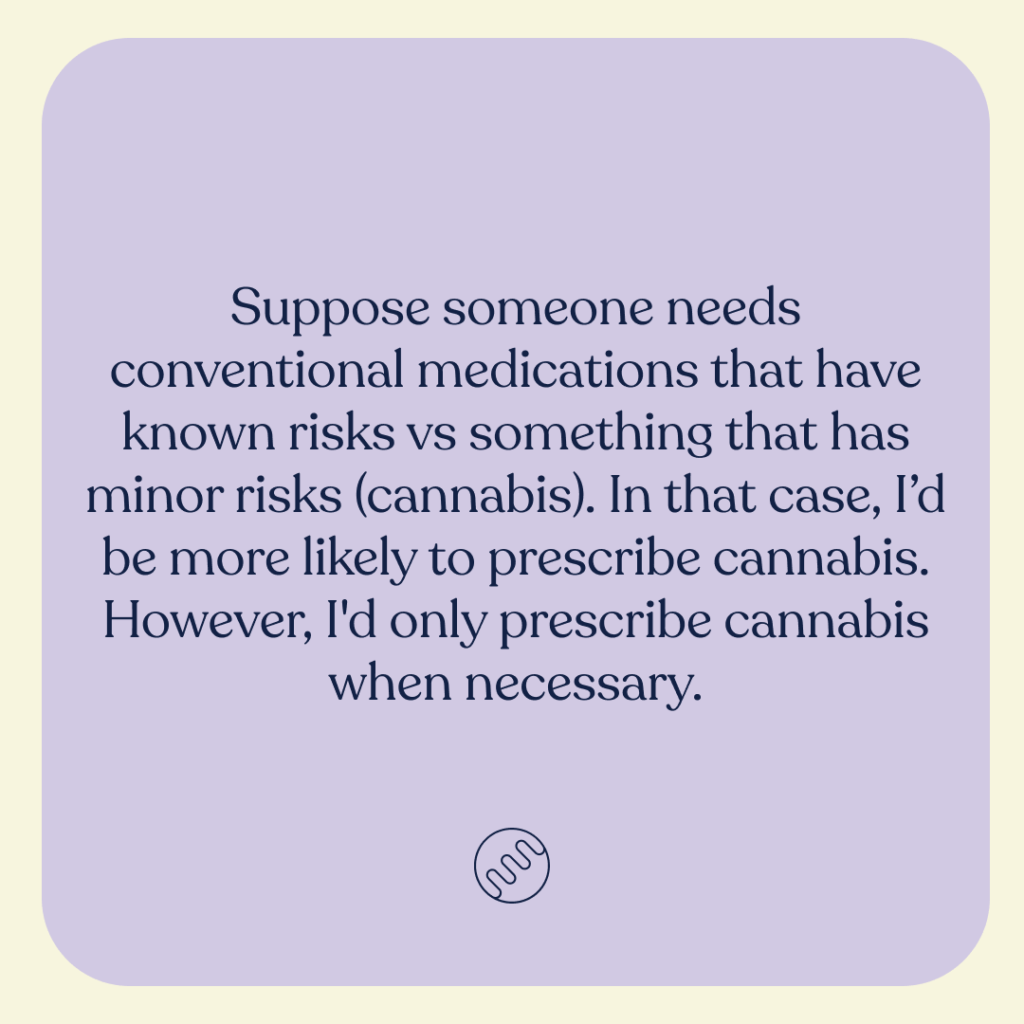
After sleep hygiene practices, traditional treatments for insomnia fall into three categories: herbal supplements, over the counter supplements and medications and prescribed pharmacological treatments.
Over the counter, doctors will often recommend things like antihistamines. Doxylamine is the traditional over the counter drug used for sleep. Supplements like lavender, kava and passionflower are herbal supplements that may help with sleep.
When it comes to prescription-based medications, Melatonin can be beneficial and is the safest of prescribed medications. In terms of more serious prescribed drugs, Benzodiazepines are a classic treatment for insomnia. Doctors may also prescribe things like Zolpidem or Zopiclone, which are STILNOX. There’s also regular off-label prescribing of antidepressants, antipsychotics and antihypertensives.
What are some of the side effects of those traditional treatments?
Remember, the goal of these treatments is to improve sleep and make sure people are waking up feeling refreshed.
Some of the herbal and over the counter supplements can be great but ineffective. Antihistamines can make you wake up feeling drowsy or hungover the next day. Melatonin, which is very commonly prescribed, is safe and can be used in a pediatric population. Still, there aren’t any studies into long term effects and safety.
Benzodiazepines (benzos) are one of the most commonly prescribed drugs for insomnia. Benzos can cause drowsiness the following day and may cause respiratory depression. So, an individual with obstructive sleep apnoea, for example, who is taking Benzos, could worsen sleep.
Most importantly, Benzos can interact with alcohol and other respiratory depressants and become lethal. They can lead to an increased risk of mortality. When Benzos are used over long periods, they can worsen mood-related disorders, impair memory and increase the risk of other diseases like dementia.
Drugs like Zolpidem and Zopiclone can lead to worsening mood. They can often lead to rebound insomnia.
“There is also a phenomenon with STILNOX where patients can have sleepwalking episodes that can be very dangerous. People have driven and jumped off buildings. So these drugs need to be used with caution.”
Off-label prescriptions of antidepressants and antipsychotics can be effective. Still, they can cause various side effects such as dizziness, weight gain, metabolic syndrome and other conditions if used for extended periods.
Compare the impact of cannabis & other pharmacological treatments on sleep architecture.
Dr Jim said:
“When treating a sleep disorder, it’s vital we maintain good sleep architecture. Sleep architecture promotes good quality sleep.
Conventional pharmacological agents for sleep disrupt the sleep architecture. When misused, cannabis can also disrupt sleep architecture and reduce REM sleep.
When used appropriately, cannabis won’t impact the natural cycles of sleep. This will help people and get good quality sleep when they are sleeping.”
When would you treat an insomnia patient with medical cannabis?
Dr Jim’s response was:
There’s always a risk vs reward for the individual. Suppose someone needs conventional medications that have known risks vs something that has minor risks (cannabis). In that case, I’d be more likely to prescribe cannabis. However, I’d only prescribe cannabis when necessary.
So, people might use it on the days when they’re feeling wound up or when there’s increased distress. But chronic use of cannabis or any drug without need doesn’t make sense.
What does the research say about cannabis and insomnia?
Double-blind placebo-controlled evidence for cannabis is still in its infant stages. There are various clinical trials where sleep was a comorbidity and was improved by cannabis. However, many factors make it impossible to prove a positive outcome. There are also other various human trials with mixed results, but these too are inconclusive.
From observational studies and real-world evidence of doctors prescribing cannabis regularly, there are good results from CBD and THC when used appropriately for patients. The biggest challenge for patients in Australia is that many doctors and organisations like the TGA don’t take observational studies into account when thinking about cannabis.
“Remember that chronic inappropriate use of cannabis, like any other drug, can lead to increased sleep dysfunction. And cannabis doesn’t work for everyone. Ideally, we need to find out the dose for certain conditions. We also need better information on the length of cannabis treatment for someone with insomnia, even though the long-term side effects look like they would be minimal.”
